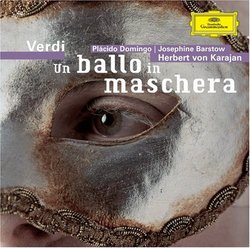FINAL CURTAIN
DAVID BRYSON | Glossop Derbyshire England | 03/10/2007
(3 out of 5 stars)
"This recording was made in 1989, right at the end of Karajan's long and illustrious career. During that career Karajan had issued more recordings, I should think, than any other classical conductor, and taking in a wider range of compositions. Right from the start Karajan had exhibited an exceptionally professional approach, and in the early days one welcomed the unfailingly smooth and rich sound and we looked forward to finding an unerringly secure sense of style and an absence of idiosyncrasies in each fresh release. However there was another side to it all, brilliantly if caustically summed up in Beecham's description of Karajan as `a kind of musical Malcolm Sargent'. The quality was high, but there was a certain predictability to it all. We always had to take the smooth with the smooth, and as decade succeeded decade there came to be a sense of an upmarket conveyor belt about it.
Refreshing my recollections recently of some of Karajan's earlier offerings, I was struck (though not at all surprised) by how little his style varied over that long time. He had certainly not lost his formidable grip in any way, but I suppose it was to some extent inevitable that a degree of freshness went out of the process; and that is how this recording of Un Ballo leaves me feeling. It may be that the recorded tone doesn't help. This is perfectly adequate but lacking in vividness, perhaps accounting for but more likely just compounding the very slightly faded sense that I get from the direction generally. One matter on which I'm not clear at all is whether the sound is an analogue-to-digital transfer or digital to begin with; and the reason why I am not clear is that the box tells me the one thing but the leaflet says the other. Similarly, while the Vienna Philharmonic is obviously a very fine orchestra, for me it doesn't have the lustre of the great Philharmonia with which Karajan made so many famous early recordings - I have recently acquired their Falstaff, and so I have a convenient Verdian comparison in mind.
The soloists here seem to me a rather mixed bunch. The outstanding contribution - outstanding by miles - is from Domingo as King Gustavo. He may not be quite the man he was in his great Don Carlo with Giulini, but there is still the sense of hyperbole and the great ringing tone that are such essential components in a Verdi performance. Leo Nucci as Renato turns in a very respectable rendering I dare say, but not one in Domingo's league, and my own ideal would have been to find the two on something like a par as I would expect that in Otello and Iago. The women's performances leave something to be desired, I fear. Both Gustavo and Renato are supposed to be in love with Amelia, but I must say that I am not passionately enamoured of the voice of Josephine Barstow. She has plenty of power and has some good moments in the ensembles, but I find the heavy pulsing beat on her long notes definitely offputting and her voice in general not terribly attractive. Florence Quivar as the soothsayer Ulrica simply seems to me miscast, being hopelessly under-voiced for saying her sooths. Sumi Jo is all right, I suppose, as the pageboy Oscar, slipping in an out of a childlike tone as the music permits, something that suggests to me that it might have been better not to attempt such a tone at all. The other parts - the judge, the sailor, the servant and even the hit-men Horn and Ribbing - perform adequately, for all they have to do.
None of that is to say that this a bad Un Ballo. It is a perfectly adequate one, but for someone who loves Verdi as much as I do it does not have the larger-than-life feel about it that this kind of operatic melodrama calls for, or at least it achieves that mainly when Domingo is singing. As a memorial of Karajan I am certainly more likely to return to some of his earlier efforts like his Falstaff or Rosenkavalier or Hansel and Gretel or even his Mastersingers. For completeness I should also say that the full libretto is not supplied. However as a sensible cut-price alternative there is a summary of each track in English, German and French so that the action is comparatively easy to follow."


 Track Listings (13) - Disc #1
Track Listings (13) - Disc #1